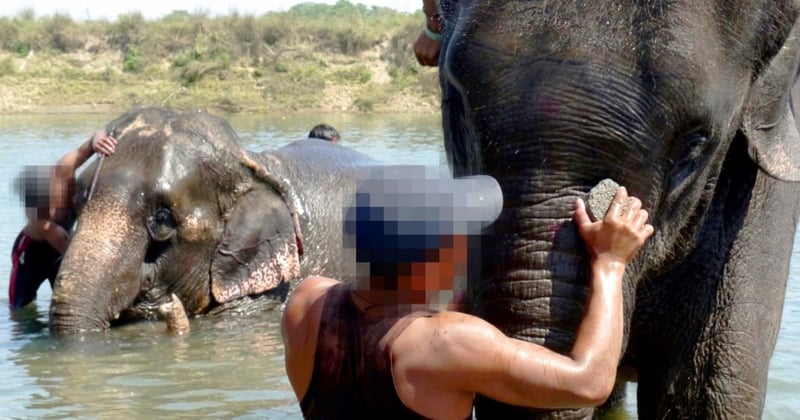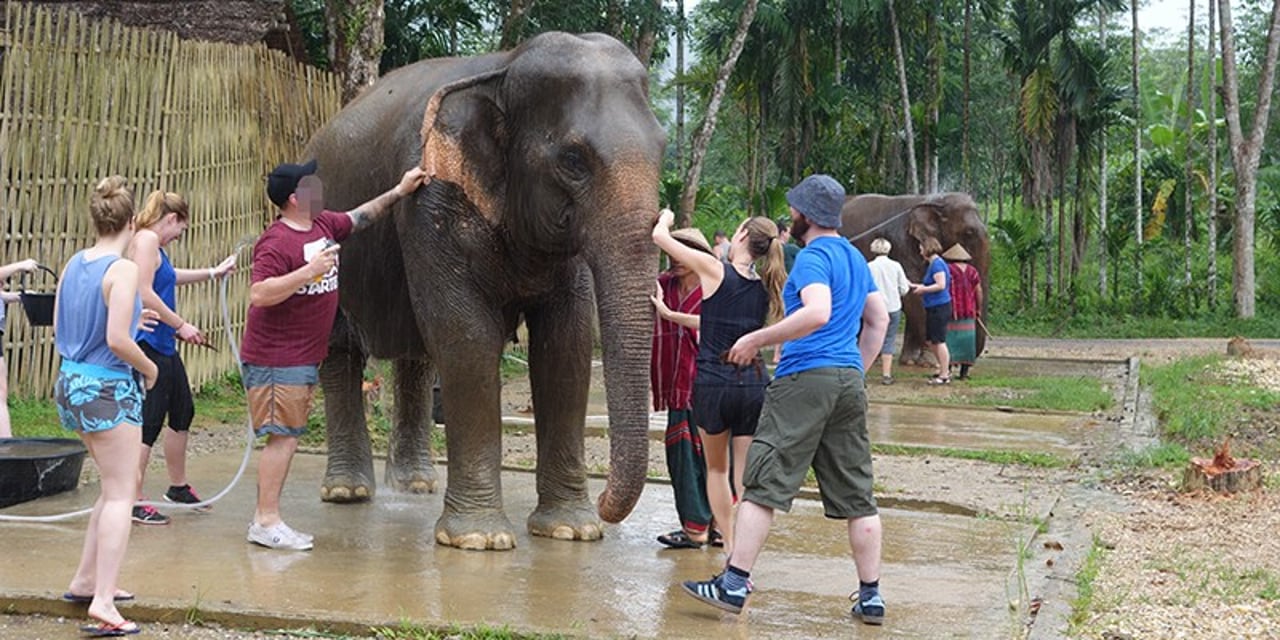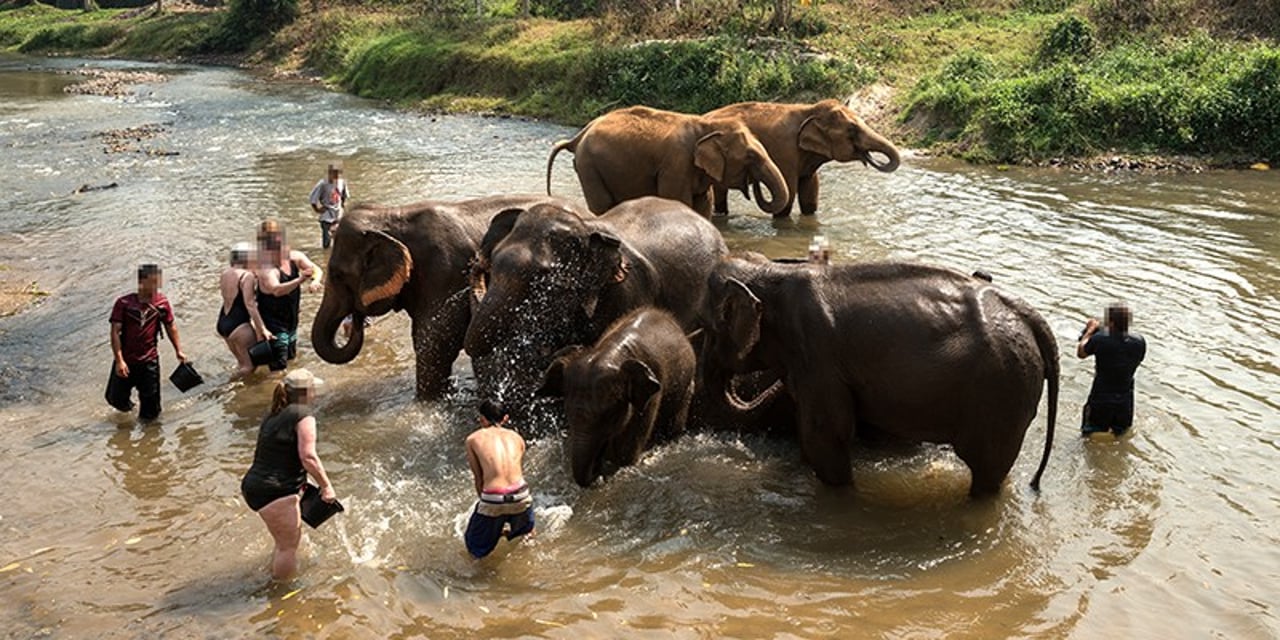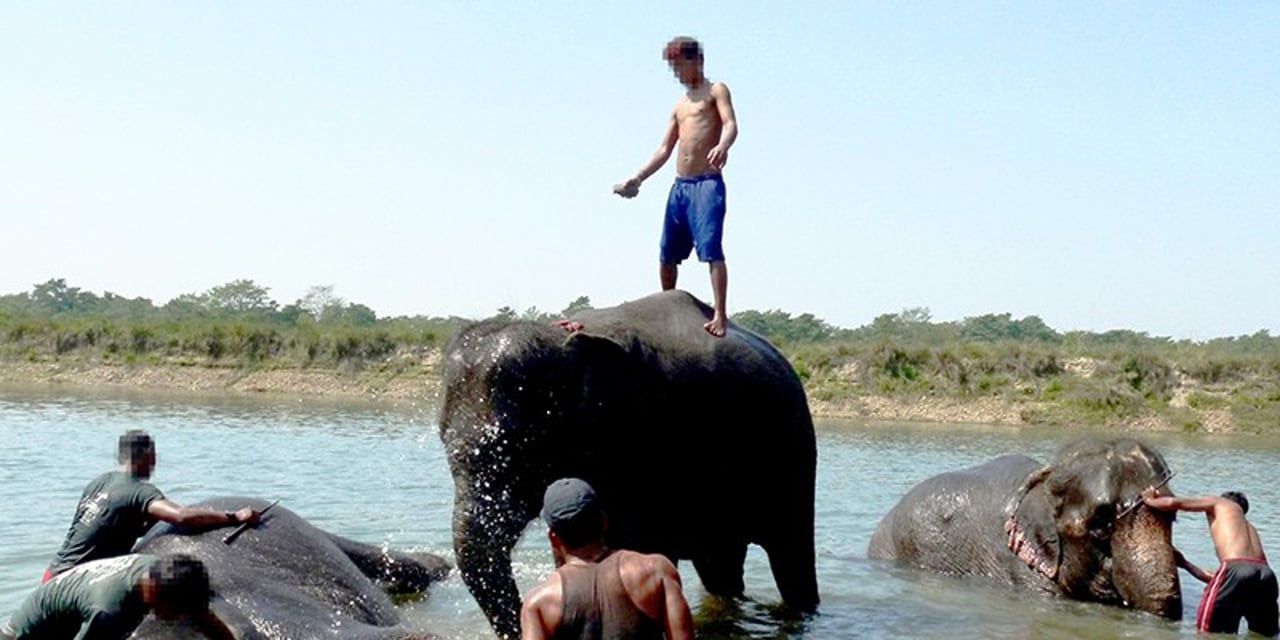
What seems like a harmless opportunity to interact with these majestic animals, is hiding a lifetime of trauma for them.
Bathing in the gorgeous wild rivers of Thailand, surrounded by elephants. You’re able to touch them, wash then and take amazing photos. Sounds great, right? Well, not for the elephants.
Broken spirits
Many people are now aware that there is hidden cruelty behind elephant rides, thanks to the work we have been doing on raising awareness, and the help of our supporters in spreading the word.
In order to closely interact with tourists, including giving them rides on their backs, the mahouts (elephant handlers) must be able to have control over these wild animals. For this to be possible, elephants undergo a torturous training process known as “the crush” – this can involve physical violence, confinement and food deprivation, essentially breaking their spirit so they will obey commands.
Elephant washing is booming
Awareness of this cruel training has risen in the past few years but unfortunately, new elephant experiences have been taking their place.
Our latest report on elephant tourism, Taken For A Ride 2: Elephants as Commodities, shows that the number of venues offering elephant bathing and washing experiences in Thailand tripled in the past five years: from 50 venues in 2015 to 161 venues in 2020.
Preying on animal-loving tourists
“Bathing with” experiences are aimed at tourists looking to do the right thing, trying to experience wildlife without cruelty. These venues, often posing as “sanctuaries,” offer the once-in-a-lifetime opportunity to bathe with an elephant or wash them. The experience is presented as harmless, sometimes even as helpful for the elephant.
Taking part in these experiences and sharing photos on social media perpetuates the misconception that elephant washing is cruelty-free, driving the demand for venues offering it.
Same cruel training, different marketing
The sad truth is that these interactions are only possible through cruel early training to obey commands. Elephants are wild animals, even those born in captivity, and as such aren’t naturally disposed to interact with humans.
Dangerous for people and elephants
What may seem like harmless fun actually poses great risks to both animals and humans.
Close interaction with elephants yields great risk for the visitors – you’ll notice in photos that mahouts (elephant handlers) are always close-by to control the animals.
For the elephants, repeated washing (for example, from hourly tour groups) can damage skin and provides no additional hygiene benefits.
Be truly cruelty-free
The only way to experience elephants without causing them suffering is to watch them from a distance in an observation-only venue. And what could be better than seeing the wonder of these majestic animals being themselves in their natural habitat?
You can be a part of this change and join our movement by signing up to our pledge to be a responsible tourist. We'll send you tips on how to be an elephant-friendly traveler - and more information on responsible tourism.
Header image credit: Jonny Sanders


